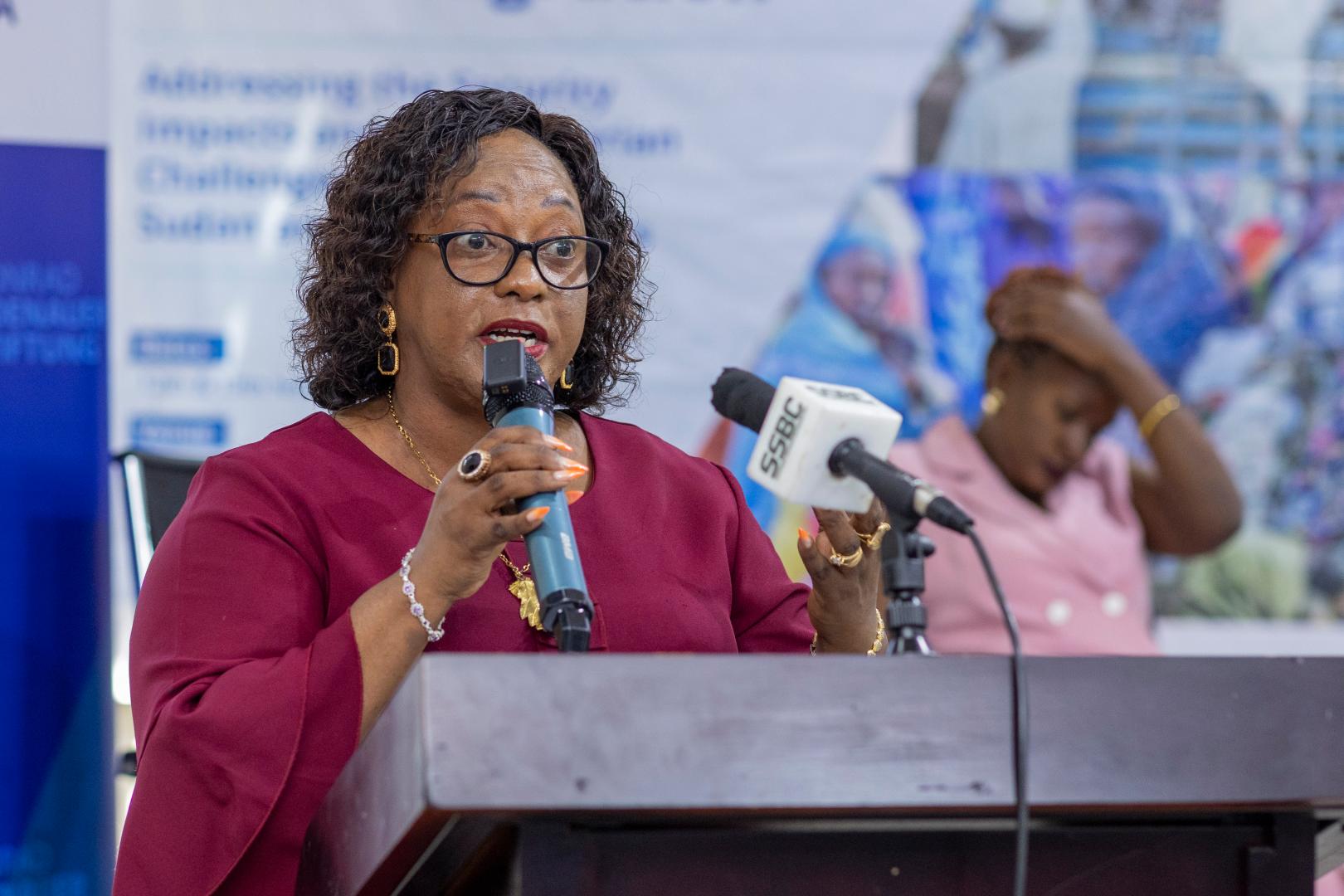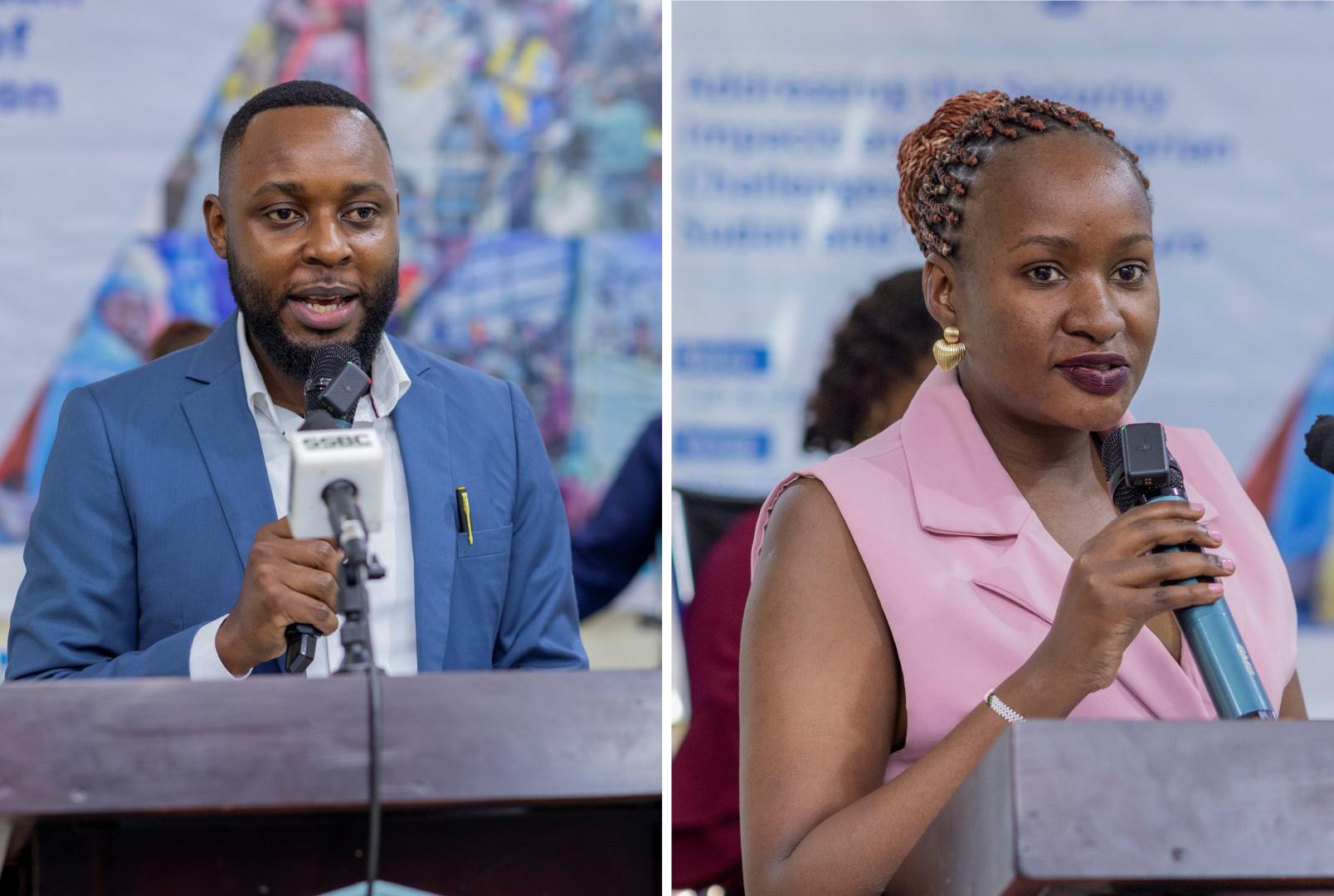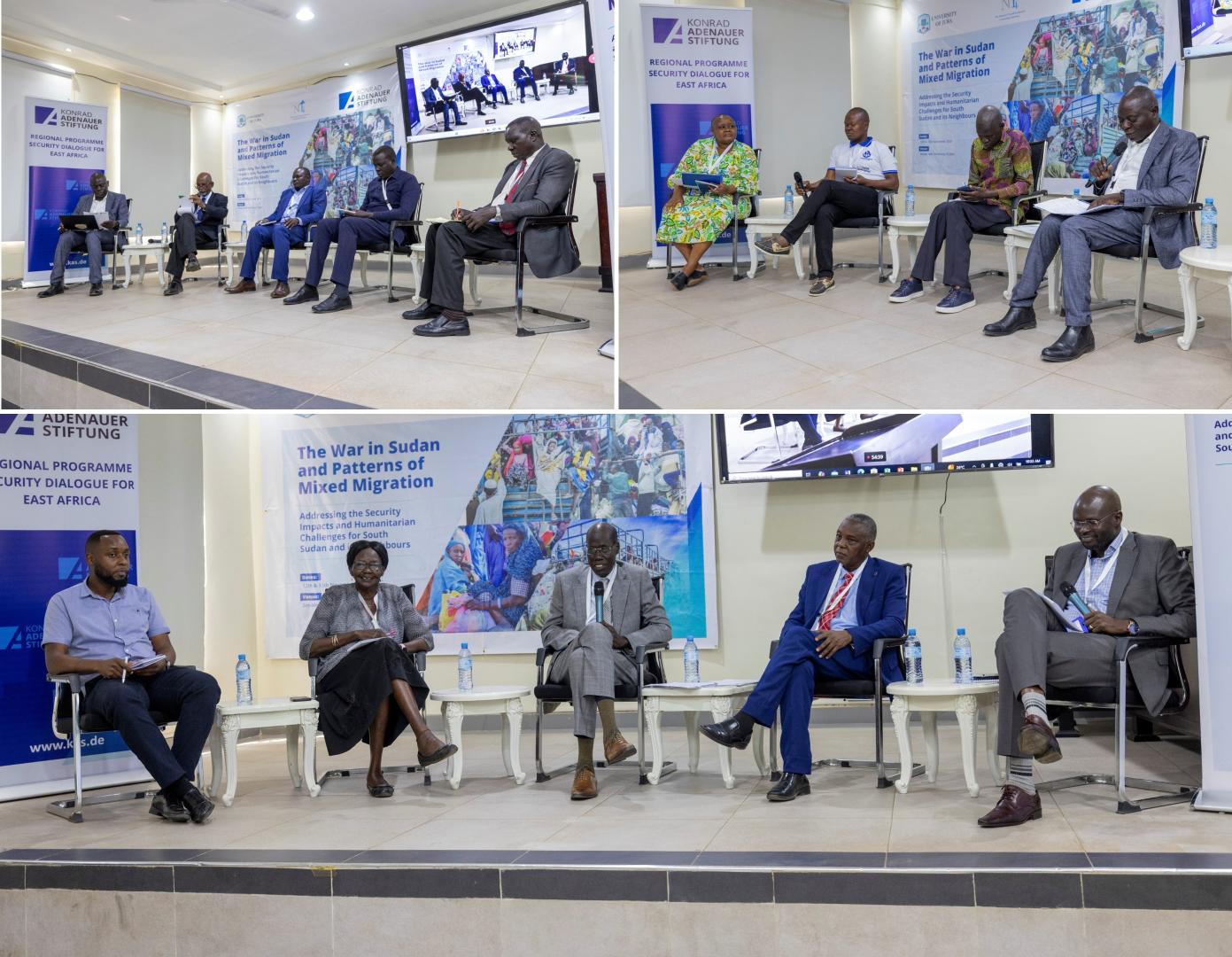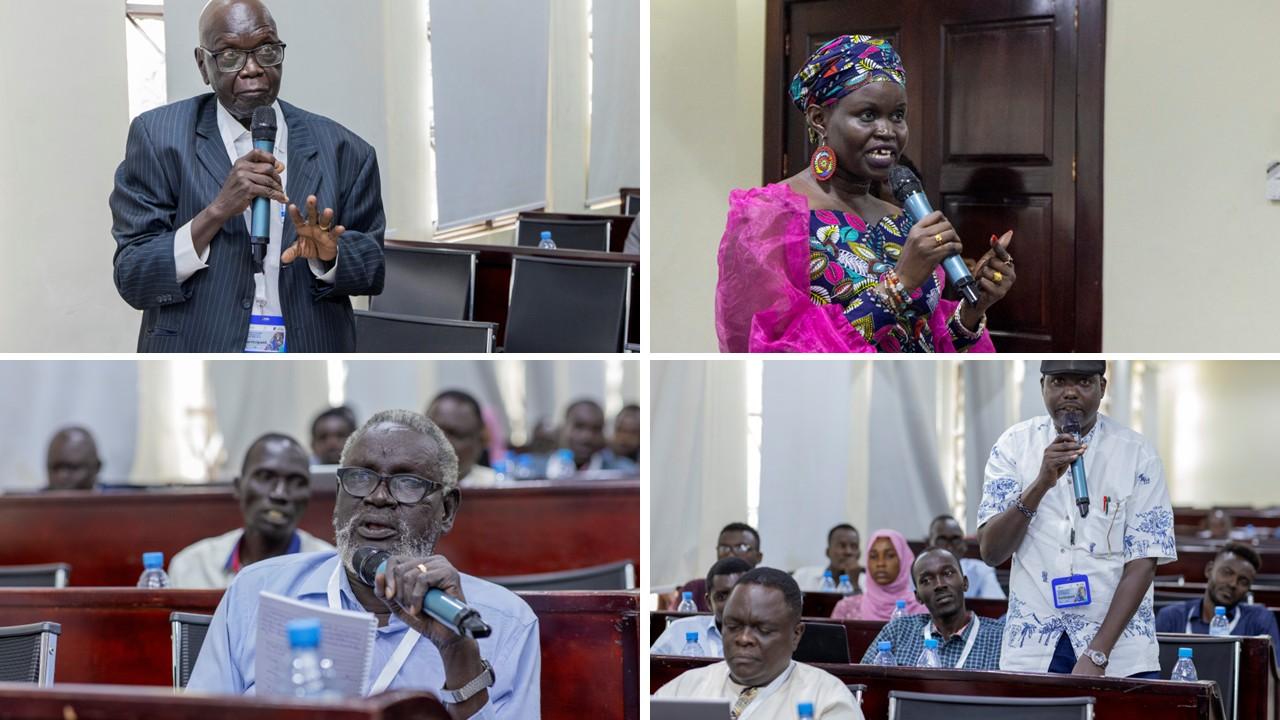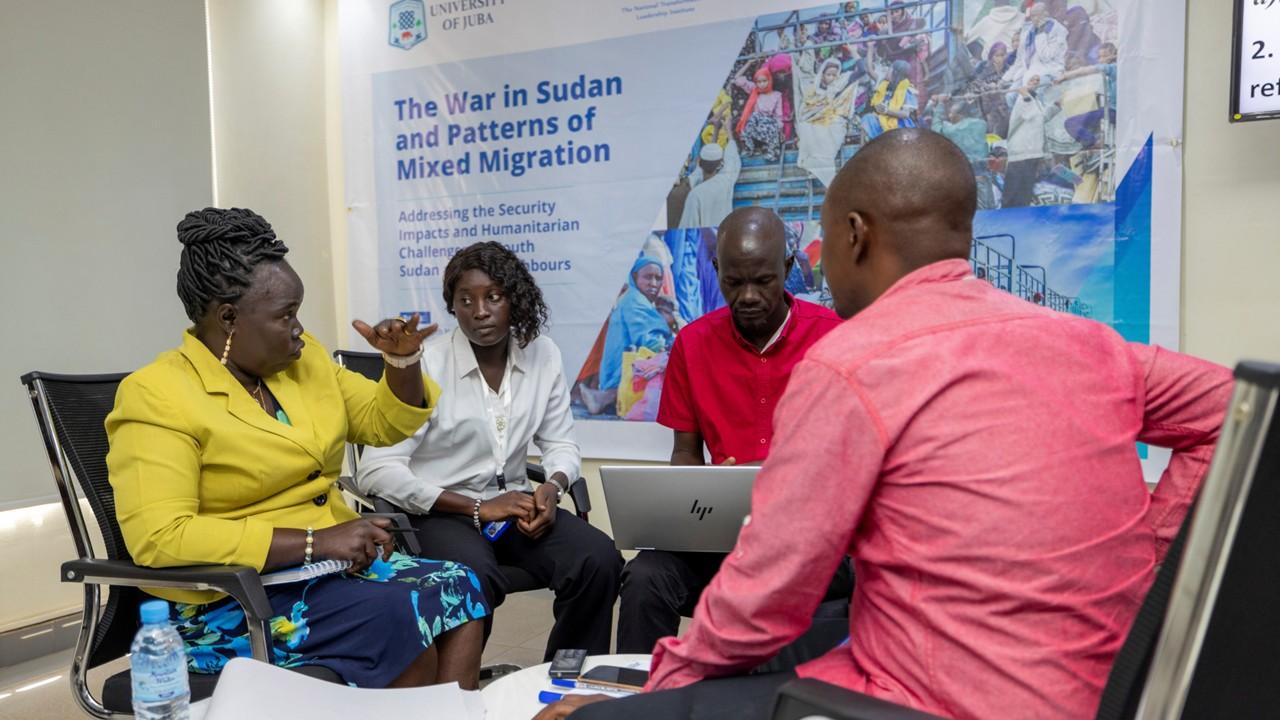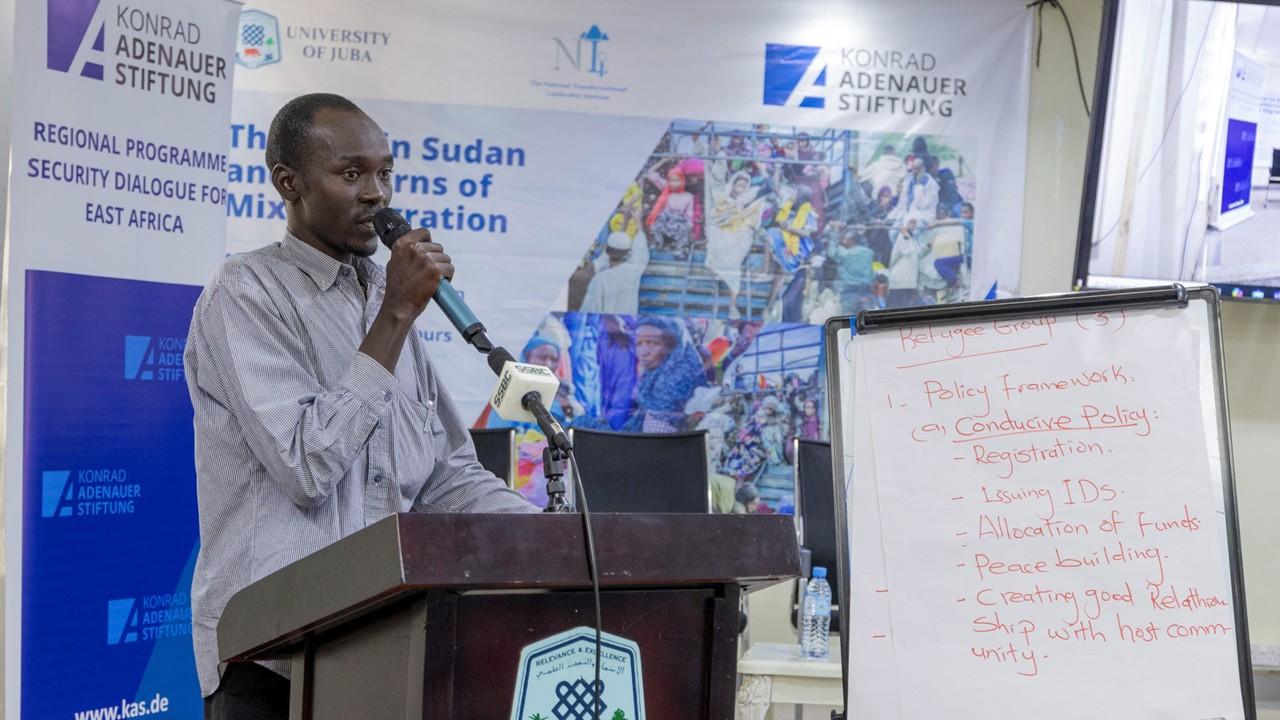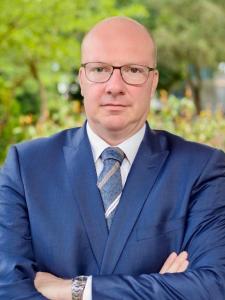The conference was opened by Dr Angelina Mattijo Bazugba, the Director of the National Transformational Leadership Institute (NTLI), who highlighted that the situation in Sudan calls for an urgent response to the ensuing humanitarian but also to seek lasting solutions for peace and security in the region. In her opening remarks, Susan Natumanya, the Project Officer of RP SIPODI East Africa, noted that the Konrad Adenauer Stiftung works to support local agency to be able to define credible local solutions for challenges like the war in Sudan. Dut Akol, Director General for Protection, Commission for Refugee Affairs gave a detailed profile of refugees and returnees in South Sudan, while Prof. Cleto Isaac, Deputy Vice Chancellor for Academic Affairs at the University of Juba, highlighted the role the University was playing in rehabilitating and resettling refugee students and lecturers.
The first panel discussion of the conference, moderated by Cristopher Oringa, Lecturer at the University of Juba, focussed on “The current situation in Sudan: Current scale, scope, and context of the war in Sudan and the role of the different actors”. Prof. Salim Gebril, Lecturer at the University of Juba, Asraf Ishak, Youth Refugee Representative, Hon. Paul Yoane Bonju, Member of the Transitional National Legislative Assembly of South Sudan and Dr James Okuk, Senior Lecturer at the University of Juba discussed the topic. They gave an overview of the historical power struggles and conflicts in Sudan and highlighted the militarisation of politics in the country as well as the complex current situation, which is exacerbated by the involvement of external actors. They also noted that a negotiated solution is considered highly unlikely, as the two warring parties will continue to try to seek a military victory. Therefore, no serious peace negotiations took place so far. In this context, the possible intervention of African countries in this conflict was also discussed as a potential solution. Furthermore, the panellists noted that other conflicts around the world are affecting humanitarian supplies and leading to a reduction in funding. After each panel discussion, participants were given the opportunity to ask questions to the panellists. To overcome existing language barriers, each session was rounded off with a translation of the content into Arabic.
Moderated by Christopher Oringa, the participants of the second panel of the day, Dr Janet Akala, Associate Education Officer at UNHCR, Prof. Leben Moro, Lecturer at the University of Juba, and Narcisse Francoise, Executive Director of the Youth Association for Peace and Development, discussed "The Situation of Refugees and Returnees in South Sudan: What is the Current Context?" They highlighted that since the outbreak of the conflict in Sudan, more than 850,000 people have fled to South Sudan, 80 percent of whom are South Sudanese nationals who had previously sought refuge in Sudan and are now returning. The discussion also focussed in particular on the vulnerability of women and children, who are exposed to considerable risks both during their flight and upon arrival in the host countries. Furthermore, the difficult economic situation in South Sudan was highlighted, which limits the availability of resources and aid for the refugees. As the humanitarian organisations on the ground are facing budget cuts, they are not able to fully compensate for this lack of support.
The second day of the conference began with an overview of the key points discussed during the previous day’s sessions. Afterwards, Prof. John Akec, Lecturer at the University of Juba, Prof. Julia Duany from the South Sudan Civil Service, and Prof. Omer Ismail Abu Bakr, also a Lecturer at the University of Juba, engaged in a discussion on "Possibilities for Integration of Refugees and Returnees: What Are the Challenges, Opportunities, and Best Practices?" under the moderation of Dr Jacob Dut. They explored the difficulties faced by refugees – both asylum seekers and returnees – including bureaucratic obstacles, settlement in refugee camps, limited opportunities to start businesses, and challenges in finding employment. However, they also highlighted the significant potential that these individuals represent for South Sudan. If their skills and qualifications were used effectively and further developed through training programmes, this could contribute to the country's economic growth. According to the panellists, fewer obstacles and more support would be key factors for the integration and empowerment of refugees.
Participants then constituted themselves into focus-groups based on the institutions they represented and discussed solutions for refugee management and resettlement. These solutions were discussed at a plenary as recommendations for policy makers. The conference was drawn to a close with remarks from Edgar Mwine, Project Officer for RP SIPODI East Africa of KAS, and Dr Angelina Mattijo Bazugba on behalf of the National Transformational Leadership Institute.
About this series
The Konrad-Adenauer-Stiftung, its educational institutions, centres and foreign offices, offer several thousand events on various subjects each year. We provide up to date and exclusive reports on selected conferences, events and symposia at www.kas.de. In addition to a summary of the contents, you can also find additional material such as pictures, speeches, videos or audio clips.



